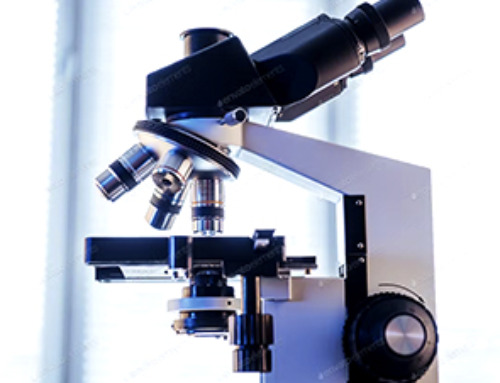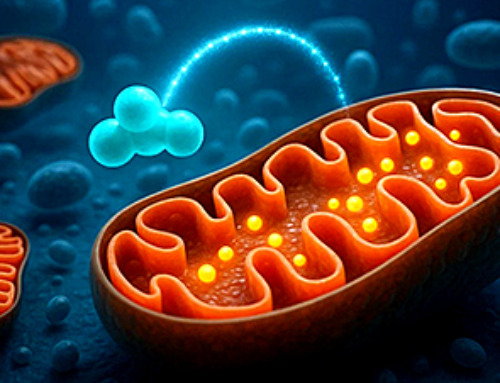A new report calls for global action on plastic pollution, urging reductions in plastic production and microplastic emissions. Researchers stress the importance of addressing plastic pollution through both scientific and social science perspectives.
A new report states that science has provided ample evidence to support a unified global strategy to address the ongoing issue of plastic pollution.
Writing in the journal Science, an international group of experts says the need for worldwide action to tackle all forms of plastic and microplastic debris has never been more pressing.
It is clear that existing national legislation alone is insufficient to address the challenge, they say, and the United Nations’ Plastic Pollution Treaty – which will undergo its fifth round of deliberations in November 2024 – presents a “tangible opportunity” for joined-up international action.
The Need for Reducing Plastic Production
However, for such a treaty to be truly effective it needs to commit to an overall reduction in plastic production alongside measures to reduce the emission and release of microplastic particles along the entire plastic life cycle. Failing to do so, the researchers add, could bring “a high risk of irreversible environmental damage”.
The article was written to mark the 20th anniversary of the first-ever study, also published in the journal Science, to coin the term microplastics to describe the microscopic fragments of plastics in our ocean.
Both studies were led by Professor Richard Thompson OBE FRS, Head of the International Marine Litter Research Unit at the University of Plymouth, and a co-coordinator of the Scientists Coalition for an Effective Plastics Treaty.
It was co-authored by experts in marine biology, sustainability, environmental psychology, global plastics policy, and risk assessment, from the University of Plymouth, University of Bangor (UK); EA – Earth Action (Switzerland); University of Vienna (Austria); University of Wollongong (Australia); and Wageningen University (Netherlands).
Professor Thompson said: “After 20 years of research there is clear evidence of harmful effects from microplastic pollution on a global scale. That includes physical harm to wildlife, harm to societies and cultures, and a growing evidence base of harm to humans. Added to that is the fact that microplastics are persistent contaminants, and once in the environment, they are virtually impossible to remove. There are still unknowns, but during the 20 years since our first study the amount of plastic in our oceans has increased by around 50%, only further emphasizing the pressing need for action.”
A Growing Body of Evidence and Global Impact
Since the publication of the first study in 2004, an estimated 7,000 research studies have been conducted on microplastics, providing considerable evidence in their sources and impacts as well as potential solutions.
Microplastics have been found on every corner of the planet, in more than 1,300 aquatic and terrestrial species, in the food and drink we consume, and in multiple tissues and organs of the human body.
With emissions of microplastics to the environment estimated to be up to 40 megatonnes per year, a number that could double by 2040, predictions indicate the potential for widescale environmental harm moving into the next century.
Professor Sabine Pahl, Professor of Urban and Environmental Psychology at the University of Vienna and Honorary Professor at the University of Plymouth, added: “Plastic pollution is completely caused by human actions. That’s why we need research on perceptions of risks and benefits of plastic as well as other drivers of policy support and change, integrating a social science perspective.”
Reference: “Twenty years of microplastics pollution research—what have we learned?” by Richard C. Thompson, Winnie Courtene-Jones, Julien Boucher, Sabine Pahl, Karen Raubenheimer and Albert A. Koelmans, 19 September 2024, Science.
DOI: 10.1126/science.adl2746
News
Breakthrough Drug Restores Vision: Researchers Successfully Reverse Retinal Damage
Blocking the PROX1 protein allowed KAIST researchers to regenerate damaged retinas and restore vision in mice. Vision is one of the most important human senses, yet more than 300 million people around the world are at [...]
Differentiating cancerous and healthy cells through motion analysis
Researchers from Tokyo Metropolitan University have found that the motion of unlabeled cells can be used to tell whether they are cancerous or healthy. They observed malignant fibrosarcoma cells and [...]
This Tiny Cellular Gate Could Be the Key to Curing Cancer – And Regrowing Hair
After more than five decades of mystery, scientists have finally unveiled the detailed structure and function of a long-theorized molecular machine in our mitochondria — the mitochondrial pyruvate carrier. This microscopic gatekeeper controls how [...]
Unlocking Vision’s Secrets: Researchers Reveal 3D Structure of Key Eye Protein
Researchers have uncovered the 3D structure of RBP3, a key protein in vision, revealing how it transports retinoids and fatty acids and how its dysfunction may lead to retinal diseases. Proteins play a critical [...]
5 Key Facts About Nanoplastics and How They Affect the Human Body
Nanoplastics are typically defined as plastic particles smaller than 1000 nanometers. These particles are increasingly being detected in human tissues: they can bypass biological barriers, accumulate in organs, and may influence health in ways [...]
Measles Is Back: Doctors Warn of Dangerous Surge Across the U.S.
Parents are encouraged to contact their pediatrician if their child has been exposed to measles or is showing symptoms. Pediatric infectious disease experts are emphasizing the critical importance of measles vaccination, as the highly [...]
AI at the Speed of Light: How Silicon Photonics Are Reinventing Hardware
A cutting-edge AI acceleration platform powered by light rather than electricity could revolutionize how AI is trained and deployed. Using photonic integrated circuits made from advanced III-V semiconductors, researchers have developed a system that vastly [...]
A Grain of Brain, 523 Million Synapses, Most Complicated Neuroscience Experiment Ever Attempted
A team of over 150 scientists has achieved what once seemed impossible: a complete wiring and activity map of a tiny section of a mammalian brain. This feat, part of the MICrONS Project, rivals [...]
The Secret “Radar” Bacteria Use To Outsmart Their Enemies
A chemical radar allows bacteria to sense and eliminate predators. Investigating how microorganisms communicate deepens our understanding of the complex ecological interactions that shape our environment is an area of key focus for the [...]
Psychologists explore ethical issues associated with human-AI relationships
It's becoming increasingly commonplace for people to develop intimate, long-term relationships with artificial intelligence (AI) technologies. At their extreme, people have "married" their AI companions in non-legally binding ceremonies, and at least two people [...]
When You Lose Weight, Where Does It Actually Go?
Most health professionals lack a clear understanding of how body fat is lost, often subscribing to misconceptions like fat converting to energy or muscle. The truth is, fat is actually broken down into carbon [...]
How Everyday Plastics Quietly Turn Into DNA-Damaging Nanoparticles
The same unique structure that makes plastic so versatile also makes it susceptible to breaking down into harmful micro- and nanoscale particles. The world is saturated with trillions of microscopic and nanoscopic plastic particles, some smaller [...]
AI Outperforms Physicians in Real-World Urgent Care Decisions, Study Finds
The study, conducted at the virtual urgent care clinic Cedars-Sinai Connect in LA, compared recommendations given in about 500 visits of adult patients with relatively common symptoms – respiratory, urinary, eye, vaginal and dental. [...]
Challenging the Big Bang: A Multi-Singularity Origin for the Universe
In a study published in the journal Classical and Quantum Gravity, Dr. Richard Lieu, a physics professor at The University of Alabama in Huntsville (UAH), which is a part of The University of Alabama System, suggests that [...]
New drug restores vision by regenerating retinal nerves
Vision is one of the most crucial human senses, yet over 300 million people worldwide are at risk of vision loss due to various retinal diseases. While recent advancements in retinal disease treatments have [...]
Shingles vaccine cuts dementia risk by 20%, new study shows
A shingles shot may do more than prevent rash — it could help shield the aging brain from dementia, according to a landmark study using real-world data from the UK. A routine vaccine could [...]





















